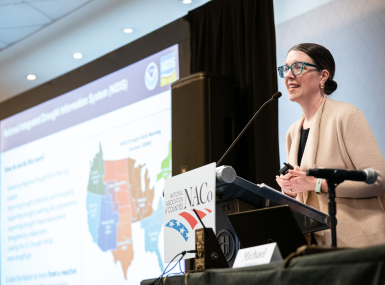Judge revives WOTUS rule in 26 states
Upcoming Events
Related News

Key Takeaways
The Waters of the U.S. (WOTUS) rule released in 2015 under the Obama administration is now officially in effect in 26 states after a federal judge in South Carolina issued an injunction on the Trump Administration’s efforts to delay the controversial 2015 rule.
On Aug. 16, U.S. District Judge David Norton of the District of South Carolina ruled in favor of the Southern Environmental Law Center, which claimed the administration violated the Administrative Procedure Act by failing to seek public comment on the Environmental Protection Agency’s rule to delay WOTUS implementation, released Jan. 31.
Norton’s injunction means the 2015 WOTUS rule now applies in the following 26 states: California, Connecticut, Delaware, Hawaii, Illinois, Iowa, Louisiana, Maine, Maryland, Massachusetts, Michigan, Minnesota, Mississippi, New Hampshire, New Jersey, New York, Ohio, Oklahoma, Oregon, Pennsylvania, Rhode Island, Tennessee, Texas, Vermont, Virginia and Washington.
For the remaining 24 states, federal district courts in North Dakota and Georgia have issued injunctions preventing the 2015 WOTUS rule from going into effect. There is litigation pending in a federal district court in Texas that could result in a nationwide injunction of WOTUS, meaning the rule could be once again halted in every state.
Since its release in 2015, NACo has expressed concerns with the Obama-era rule due to its broader interpretation of WOTUS and the potential impact it could have on county-owned and maintained roads and roadside ditches, bridges, flood control channels, drainage conveyances and wastewater and stormwater systems. NACo had called for the 2015 final WOTUS rule to be withdrawn until further analysis.
Attachments
Related News

NOAA outlines help for counties navigating drought’s growing risks
In April, the National Integrated Drought Information System will launch the Mid-Atlantic Drought Early Warning System, which will help county officials allocate resources and attention to mitigate drought-related disasters.

House Agriculture Committee introduces 2026 Farm Bill
On February 13, House Agriculture Committee Chairman G.T. Thompson (R-Pa.-15) introduced the House version of the 2026 Farm Bill, the Farm, Food, and National Security Act of 2026.

Congress increases oversight of Gulf Coast Restoration Trust Fund
On February 3, Congress passed new funding and authority for an audit and expanded oversight of the Gulf Coast Restoration Trust Fund, which houses federal funds for recovery from the Deepwater Horizon oil spill disaster. The provision was included in the Financial Services-General Government appropriations bill (FSGG), which was one of five included in a minibus package passed by Congress (P.L. 119-75).